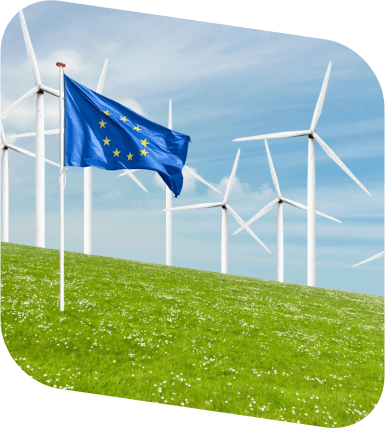The EU CBAM, or Carbon Border Adjustment Mechanism, is a significant policy initiative proposed by the European Union (EU) to address the issue of carbon leakage and ensure that the EU's climate objectives are not undermined by carbon-intensive imports. The primary goal of the EU CBAM is to encourage companies both within and outside the EU to reduce their carbon emissions and transition to more sustainable production methods.


Here are key features and objectives of the EU CBAM:
Addressing Carbon Leakage
Carbon leakage refers to the phenomenon where companies in the EU may relocate their production outside the EU to countries with less stringent climate regulations, thereby potentially increasing global emissions. The EU CBAM aims to prevent this by imposing a carbon price on certain imported goods.
Pricing Carbon Emissions
Under the EU CBAM, imported goods would be subject to a carbon price, which is intended to reflect the emissions associated with their production. This price would be based on the carbon content of the imported product, similar to how carbon pricing mechanisms work within the EU.
Promoting Carbon Neutrality
The EU CBAM is designed to incentivize companies to reduce their carbon emissions by shifting to cleaner production methods. It encourages the adoption of technologies and practices that align with the EU’s climate goals, such as renewable energy and energy efficiency measures.
Supporting the Green Transition
The revenue generated from the carbon pricing mechanism would be used to support the EU’s green transition efforts, including investments in renewable energy, sustainable agriculture, and research and innovation in clean technologies.
Gradual Implementation
The EU CBAM is expected to be implemented gradually, starting with a limited number of sectors and products, such as cement, steel, aluminum, and electricity imports. Over time, it may expand to cover more sectors and products.
Compliance and Reporting
Importers will need to demonstrate the carbon content of their products and verify their emissions data. They will be required to purchase carbon allowances to cover their emissions. Non-compliance could result in penalties.
The EU CBAM is seen as a significant step toward aligning trade policies with climate objectives. It seeks to ensure that imported goods meet the same environmental standards as those produced within the EU, leveling the playing field for domestic industries while encouraging global climate action. The EU CBAM is part of the EU’s broader strategy to achieve climate neutrality by 2050 and to implement the European Green Deal.


Contact Us Today
Jurcom follows closely the EU CBAM advancements and consults clients with required steps. Contact us today for more information.

